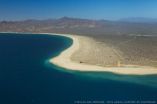(Press-News.org) CINCINNATI—Even though it could impact their admission or care in the hospital, few seizing patients receive a diagnostic electroencephalogram, or EEG, in the emergency department, says a new study presented this week by University of Cincinnati researchers.
The research team, led by assistant professor of emergency medicine and neurosurgery William Knight, MD, looked at the use of EEGs to diagnose status epilepticus, a life-threatening condition in which the brain is in a state of persistent seizure for more than five minutes.
Status epilepticus affects more than 100,000 people each year in the United States, and the use of an EEG in the emergency department could assist with diagnosing patients who need immediate care for a persistent seizure.
To better understand how EEGs are used in patients suspected of seizures, Knight and his collaborators conducted a retrospective chart review of all adults who came to the emergency department of an urban, tertiary care hospital with seizures or suspected status epilepticus and who received an EEG within 24 hours of admission.
They found that over a quarter of patients with suspected seizures had an EEG performed in the ED, but only 6 percent of the EEGs resulted in a diagnosis of seizures. Only 2 percent of EEGs performed after a patient was admitted to the hospital were positive—demonstrating that some patients with a negative EEG may not need to be admitted.
"We showed that overall, a very small proportion of seizure patients in the ED end up with status epilepticus," says Knight. "We also concluded that there may be future opportunities to utilize ED observation units to obtain EEGs in seizure patients—which may ultimately reduce hospital and/or intensive care unit (ICU) admissions."
Knight and co-authors are presenting the results at the annual meeting of the Society for Academic Emergency Medicine, held May 14-17 in Dallas.
INFORMATION:
Co-authors of the study include Pooja Kadambi, Kimberly Hart, Opeolu Adeoye, MD, and Christopher Lindsell, PhD.
Research finds few seizing patients receive EEGs in emergency department
2014-05-19
ELSE PRESS RELEASES FROM THIS DATE:
New research shows humans have more impact on tropical nitrogen levels
2014-05-19
MISSOULA – A new paper co-written by four University of Montana researchers finds that humans have more than doubled tropical nitrogen inputs.
Benjamin Sullivan, a researcher working with UM College of Forestry and Conservation Professor Cory Cleveland, led the team that looked at the nitrogen cycle in tropical rain forests. Sullivan and his colleagues used a new method to demonstrate that biological nitrogen fixation in tropical rain forests may be less than a quarter of previous estimates.
Nitrogen is an essential nutrient for plant and animal life. It's required in ...
Scripps Research Institute chemists discover structure of cancer drug candidate
2014-05-19
LA JOLLA, CA – May 19, 2014 – Chemists at The Scripps Research Institute (TSRI) have determined the correct structure of a highly promising anticancer compound approved by the U.S. Food and Drug Administration (FDA) for clinical trials in cancer patients.
The new report, published this week by the international chemistry journal Angewandte Chemie, focuses on a compound called TIC10.
In the new study, the TSRI scientists show that TIC10's structure differs subtly from a version published by another group last year, and that the previous structure associated with TIC10 ...
Weight bias plagues US elections
2014-05-19
EAST LANSING, Mich. --- Overweight political candidates tend to receive fewer votes than their thinner opponents, finds a new study co-authored by a Michigan State University weight bias expert.
While past research has found weight discrimination in schools, businesses, entertainment and other facets of American society, this is the first scientific investigation into whether that bias extends to election outcomes, said Mark Roehling, professor of human resources.
"We found weight had a significant effect on voting behavior," Roehling said. "Additionally, the greater ...
Favoritism, not hostility, causes most discrimination, says UW psychology professor
2014-05-19
Most discrimination in the U.S. is not caused by intention to harm people different from us, but by ordinary favoritism directed at helping people similar to us, according to a theoretical review published online in American Psychologist.
"We can produce discrimination without having any intent to discriminate or any dislike for those who end up being disadvantaged by our behavior," said University of Washington psychologist Tony Greenwald, who co-authored the review with Thomas Pettigrew of the University of California, Santa Cruz.
Greenwald and Pettigrew reviewed ...
UT Dallas study sheds light on how infants understand speech
2014-05-19
A new study from a UT Dallas researcher demonstrates the importance of considering developmental differences when creating programs for cochlear implants in infants.
Dr. Andrea Warner-Czyz, assistant professor in the School of Behavioral and Brain Sciences, recently published the research in the Journal of the Acoustical Society of America.
"This is the first study to show that infants process degraded speech that simulates a cochlear implant differently than older children and adults, which begs for new signal processing strategies to optimize the sound delivered to ...
Brain steroids make good dads
2014-05-19
Testosterone in males is generally associated with aggression and definitely not with good parenting. Insights from a highly social fish can help understand how other androgenic steroids, like testosterone, can shape a male's parenting skills, according to a recent Georgia State University research study.
Once bluebanded gobies become fathers, they stay close to the developing eggs, vigorously fan and rub them until they hatch, and also protect them from mothers who would eat them. By injecting a series of chemicals into the brains of these fathers, the research team ...
Better science for better fisheries management
2014-05-19
Jon Grabowski, a marine science and fisheries expert at Northeastern University's Marine Science Center in Nahant, Massachusetts, has been working with other fisheries scientists as well as economists, social scientists, and policy makers to determine the best strategies for dealing with all of the Northeast region's fisheries that impact habitat, which includes cod, haddock, cusk, scallops, clams and other fish that live near the sea floor and are of significant socioeconomic value to the region.
In research published online last month in the journal Reviews in Fisheries ...
Predicting which stroke patients will be helped -- or harmed -- by clot-busting treatment
2014-05-19
Johns Hopkins researchers say they have developed a technique that can predict — with 95 percent accuracy — which stroke victims will benefit from intravenous, clot-busting drugs and which will suffer dangerous and potentially lethal bleeding in the brain.
Reporting online May 15 in the journal Stroke, the Johns Hopkins team says these predictions were made possible by applying a new method they developed that uses standard magnetic resonance imaging (MRI) scans to measures damage to the blood-brain barrier that protects the brain from drug exposure.
If further tests ...
Studies find existing and experimental drugs active against MERS-coronavirus
2014-05-19
A series of research articles published ahead of print in the journal Antimicrobial Agents and Chemotherapy have identified a number of existing pharmaceutical drugs and compounds under development that may offer effective therapies against Middle East Respiratory Syndrome (MERS).
In the first study, researchers screened a library of 290 pharmaceutical drugs, either FDA-approved or in advanced clinical development for antiviral activity against the MERS coronavirus (MERS-CoV) and severe acute respiratory syndrome coronavirus (SARS-CoV) in cell culture. They found 27 ...
Report finds site of mega-development project in Mexico is a biodiversity hotspot
2014-05-19
RIVERSIDE, Calif. — Cabo Pulmo is a close-knit community in Baja California Sur, Mexico, and the best preserved coral reef in the Gulf of California. But now the lands adjacent to the reef are under threat from a mega-development project, "Cabo Dorado," should construction go ahead.
Scientists at the University of California, Riverside have published a report on the terrestrial biodiversity of the Cabo Pulmo region that shows the project is situated in an area of extreme conservation value, the center of which is Punta Arena, an idyllic beach setting proposed to be completely ...




